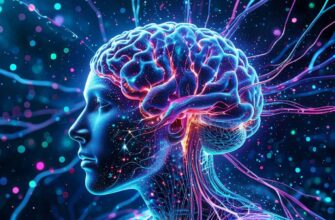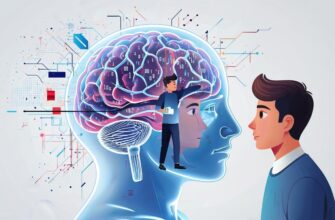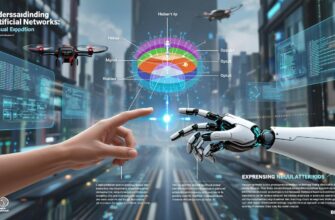In the ever-evolving landscape of business technology, the question arises: will artificial intelligence (AI) kill CRM systems? Customer Relationship Management systems have been a cornerstone of business operations, essential for managing interactions with customers and streamlining processes. However, the burgeoning capabilities of AI have prompted debate about the future of these systems.
- Understanding CRM Systems
- What are CRM Systems?
- The Traditional Role of CRM Systems
- Limitations of CRM Systems
- The Rise of Artificial Intelligence
- AI’s Impact on Business
- How AI Enhances CRM Systems
- The Symbiosis of AI and CRM
- AI-Powered CRM: A New Era
- Key Features of AI-Powered CRM
- The Future of CRM Systems
- Potential Challenges and Considerations
- Data Privacy Concerns
- Dependency on Technology
- Conclusion
Understanding CRM Systems
What are CRM Systems?
Customer Relationship Management (CRM) systems are software solutions designed to help businesses manage relationships and interactions with potential customers and clients. They allow companies to organize information about clients, track leads, manage sales pipelines, and analyze customer data.
CRMs help in automating repetitive tasks, improving customer service, and ultimately enhancing overall productivity. The rise of digital technologies has made these systems more essential than ever, especially with the growing focus on personalized customer experiences.
The Traditional Role of CRM Systems
Traditionally, CRM systems functioned as centralized databases for storing customer data, transaction history, and communication logs. Sales teams used CRM software to maintain leads and track follow-ups. Marketers leveraged the information to create targeted campaigns, ensuring that customer outreach is effective and efficient.
Limitations of CRM Systems
Despite their benefits, traditional CRM systems have limitations. They often require significant manual input and can lead to data silos within organizations. Moreover, many CRM systems lack sophisticated analytical capabilities, leaving businesses with limited insights into customer behavior and preferences. This is where the potential of AI comes into play.
The Rise of Artificial Intelligence
AI’s Impact on Business
AI technology has rapidly advanced in recent years, transforming various industries by improving efficiency and enabling new capabilities. From chatbots that handle customer inquiries to machine learning algorithms that predict customer behavior, AI is reshaping how businesses operate.
How AI Enhances CRM Systems
Rather than killing CRM systems, AI is more likely to enhance their functionality. Integrating AI into CRM systems can:
- Automate Data Entry: Machine learning algorithms can extract and input data into CRM systems, significantly reducing manual work.
- Predict Customer Behavior: AI can analyze historical data to predict future trends and customer needs, allowing for more proactive engagement.
- Improve Customer Personalization: AI can help businesses create personalized experiences by segmenting customers and tailoring interactions based on individual preferences.
The Symbiosis of AI and CRM
AI-Powered CRM: A New Era
The future of CRM systems lies in AI-powered CRM solutions. These systems utilize the capabilities of AI to process and analyze data at scale. Consequently, organizations can harness these insights to build stronger relationships with customers and improve overall engagement.
Key Features of AI-Powered CRM
-
Intelligent Analytics: AI allows for real-time analysis of customer data, helping businesses make informed decisions quickly.
-
Enhanced Automation: Automatic follow-up reminders, scheduled communications, and even lead scoring become far more effective with AI algorithms.
-
Personalized Insights: AI helps in creating tailored marketing campaigns based on deep insights drawn from customer interactions.
The Future of CRM Systems
As AI continues to evolve, we can expect more CRM solutions to incorporate advanced features like natural language processing, enabling virtual assistants that can directly engage with customers. These advancements will further blur the lines between CRM systems and AI, creating a more interconnected ecosystem.
Potential Challenges and Considerations
Data Privacy Concerns
With the increased use of AI, concerns surrounding data privacy and security become paramount. Businesses must ensure that they comply with regulations and protect customer data from breaches while utilizing AI technologies.
Dependency on Technology
Another challenge is the potential over-reliance on AI tools. If organizations start to depend entirely on AI for customer interactions, there could be a loss of the human touch that is often crucial in building customer relationships.
Conclusion
In conclusion, artificial intelligence is unlikely to kill CRM systems; instead, it will redefine them. The integration of AI in CRM represents a significant opportunity to enhance customer relationship management practices. By embracing AI technologies, businesses can not only streamline their operations but also create deeper connections with customers, thus ensuring sustained success in a competitive marketplace.
As organizations move forward, balancing the benefits of AI with ethical considerations and human interaction will be crucial for the future of customer relationship management.
Editor’s Note: In the dialogue surrounding AI and CRM systems, it is essential to recognize AI’s role as an enhancer rather than a replacement. The future will depend on how businesses integrate these technologies to improve customer relations while maintaining ethical standards.
Meta-Description: Discover the potential of AI in revolutionizing CRM systems and how it enhances, rather than kills, customer relationship management strategies.







